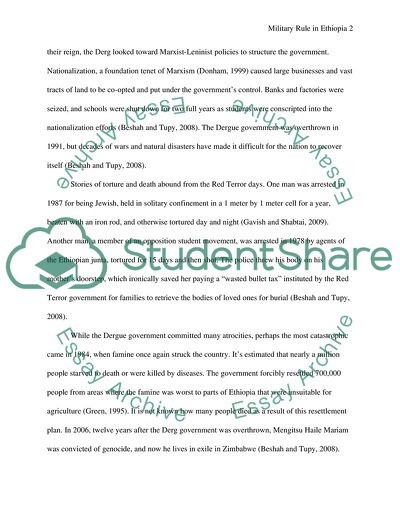Cite this document
(Military Rule in Ethiopia Term Paper Example | Topics and Well Written Essays - 1250 words, n.d.)
Military Rule in Ethiopia Term Paper Example | Topics and Well Written Essays - 1250 words. https://studentshare.org/politics/1722207-military-rule-in-ethiopia
Military Rule in Ethiopia Term Paper Example | Topics and Well Written Essays - 1250 words. https://studentshare.org/politics/1722207-military-rule-in-ethiopia
(Military Rule in Ethiopia Term Paper Example | Topics and Well Written Essays - 1250 Words)
Military Rule in Ethiopia Term Paper Example | Topics and Well Written Essays - 1250 Words. https://studentshare.org/politics/1722207-military-rule-in-ethiopia.
Military Rule in Ethiopia Term Paper Example | Topics and Well Written Essays - 1250 Words. https://studentshare.org/politics/1722207-military-rule-in-ethiopia.
“Military Rule in Ethiopia Term Paper Example | Topics and Well Written Essays - 1250 Words”. https://studentshare.org/politics/1722207-military-rule-in-ethiopia.


